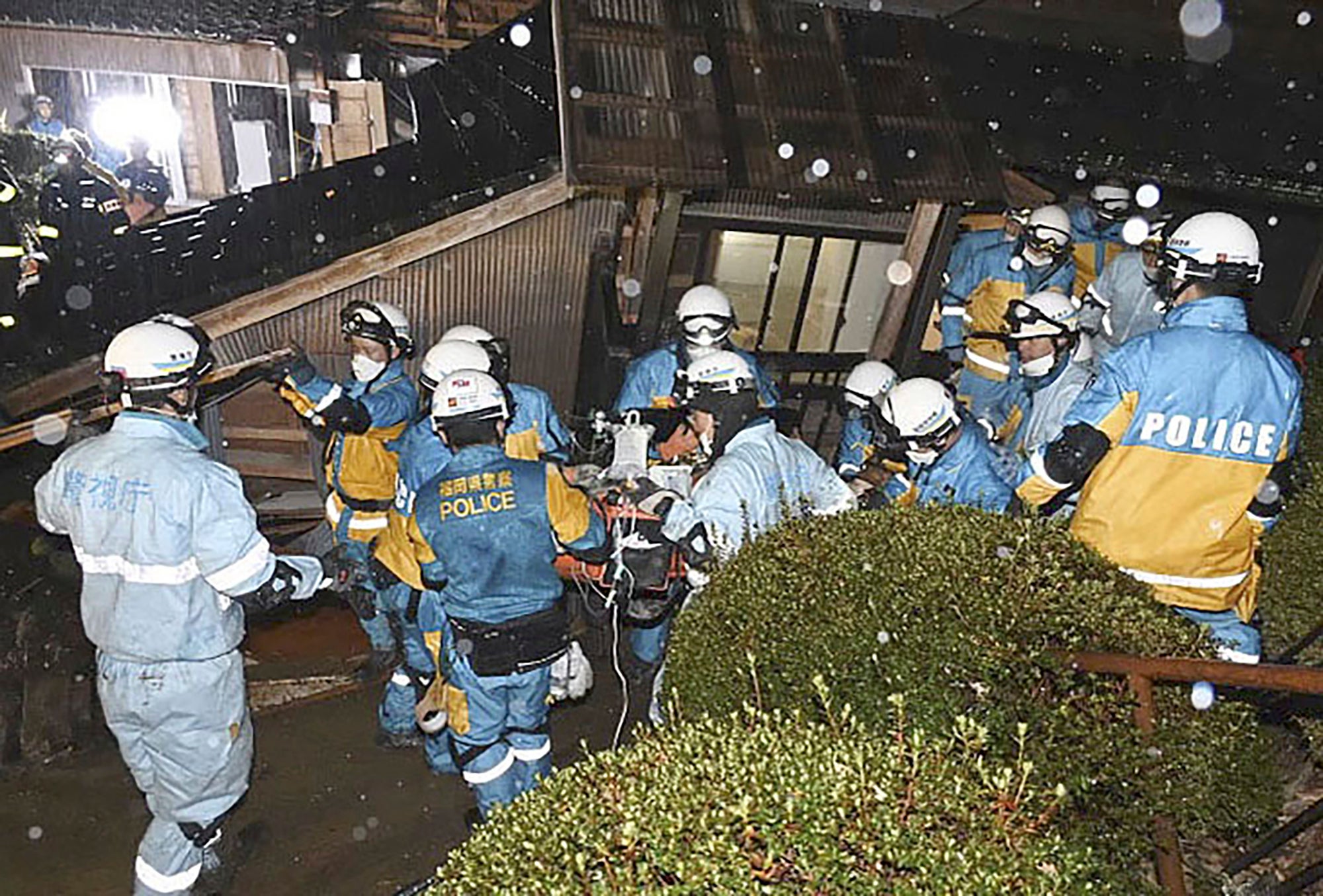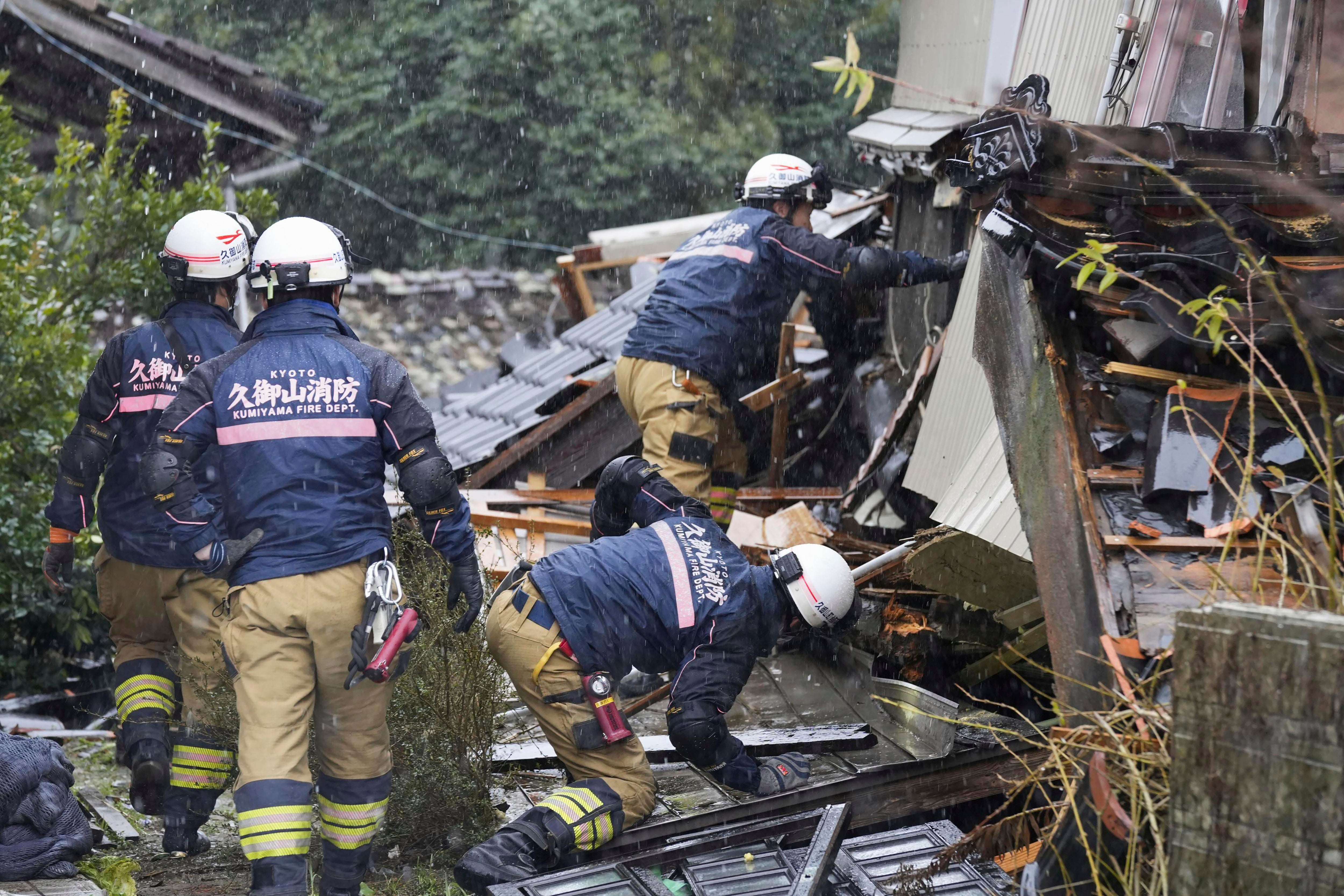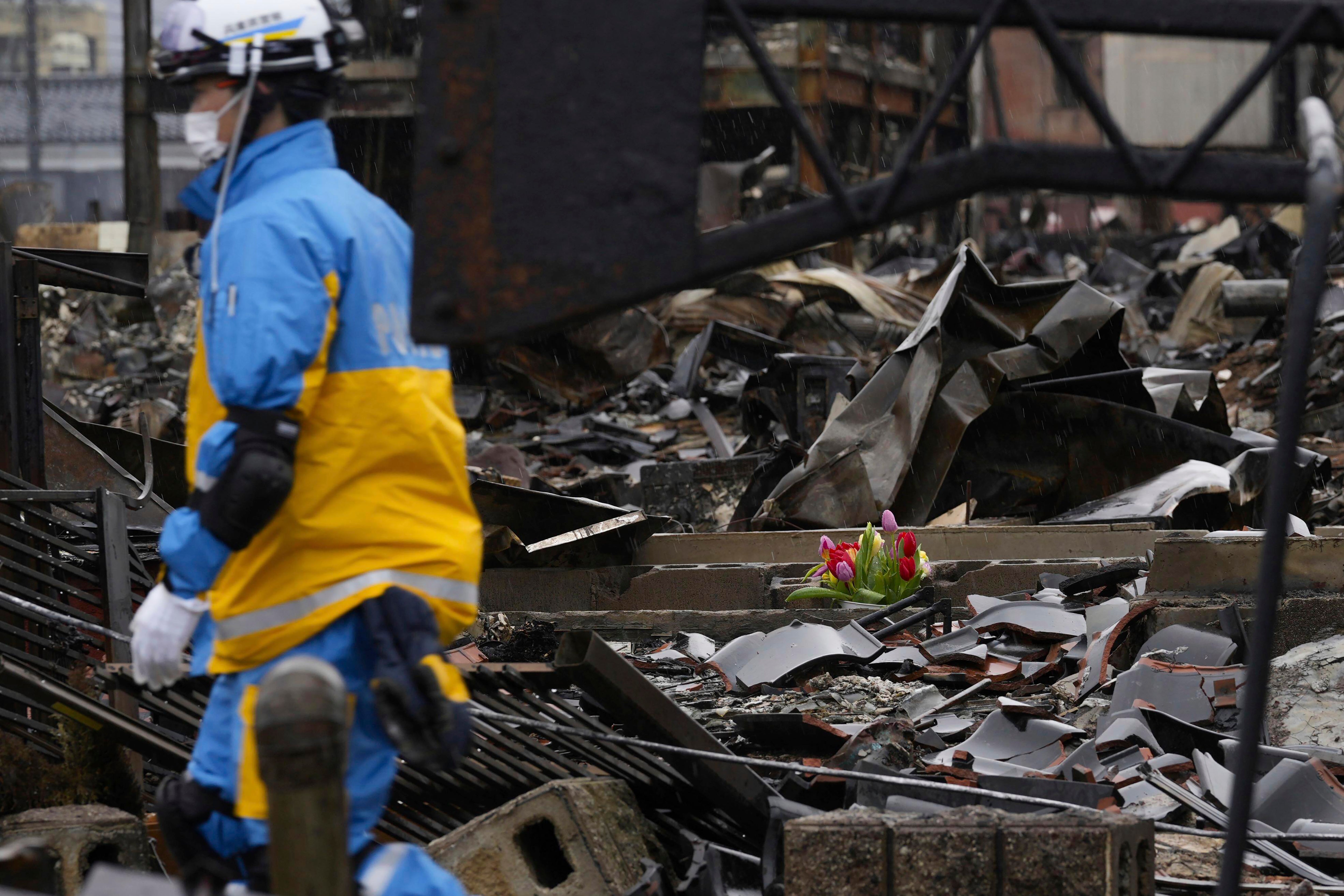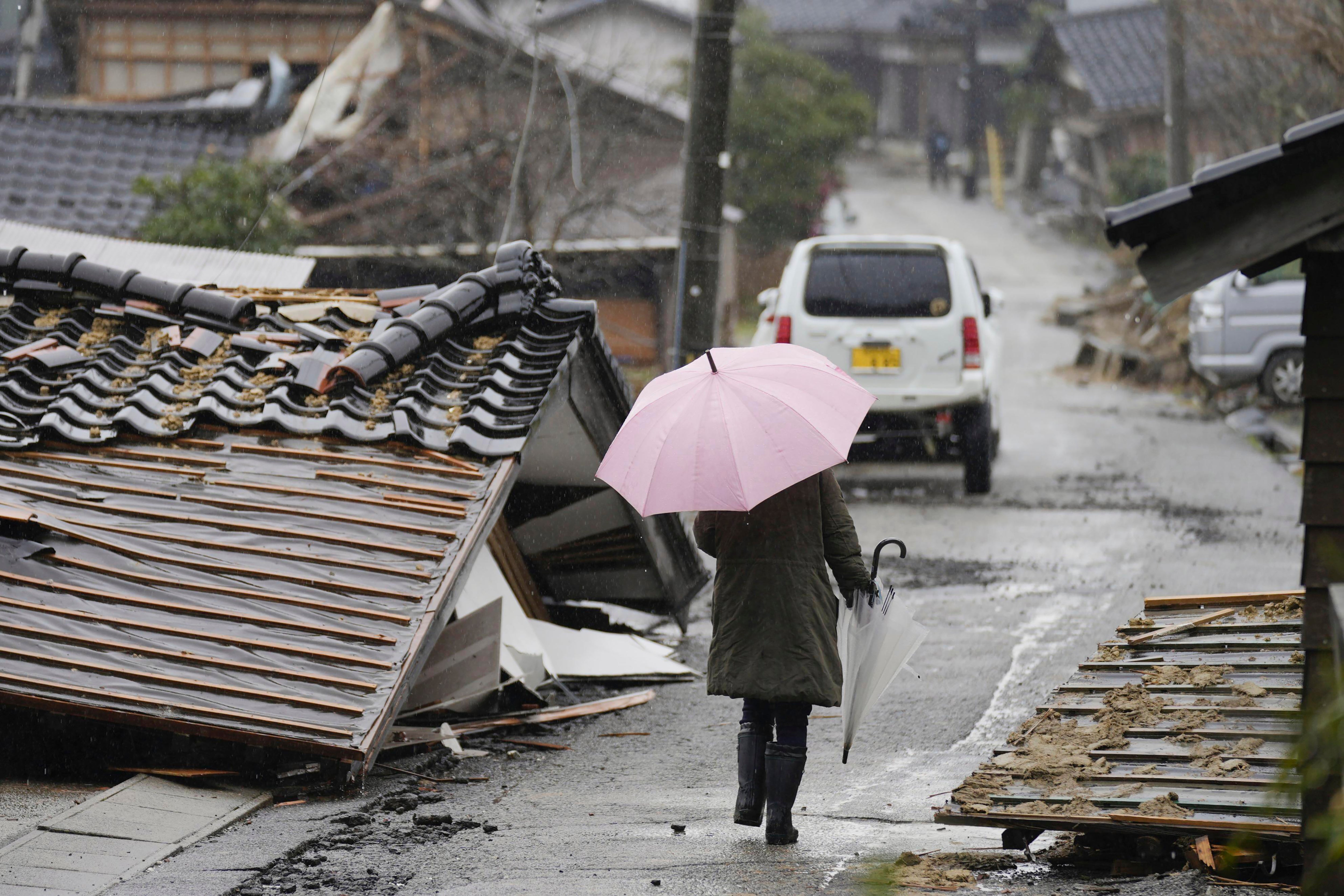Woman in her 90s pulled alive from rubble five days after Japan earthquake killed 126 people
Rescuers found pensioner in Suzu city, Ishikawa Prefecture, 124 hours after the 7.6 magnitude quake struck
A woman in her 90s has been pulled alive from a collapsed house in western Japan, more than five days after a major earthquake hit the region.
Rescuers found the woman in Suzu city, Ishikawa Prefecture, late on Saturday, 124 hours after the 7.6 magnitude quake struck the area on Monday, killing at least 126 people, toppling buildings and setting off landslides.
She was taken to a nearby hospital, according to Japan’s public broadcaster NHK. A doctor told reporters on Sunday that she is well enough to have conversations, but her legs are injured.


Kume Takanori, a member of the emergency rescue team, said it took hours to free the woman as her knees had been stuck under furniture within a very narrow space between the first and second floor.
Chances for survival diminish after the first 72 hours but several other dramatic rescues have been reported over the past few days as soldiers, firefighters and others joined a widespread effort.
Among the 126 dead was a five-year-old boy who had been recovering from injuries he suffered when boiling water spilled on him during the earthquake. His condition suddenly worsened and he died Friday, according to Ishikawa prefecture, the hardest-hit region.
Aftershocks threatened to bury more homes and block roads crucial for relief shipments. Officials warned that roads already cracked could collapse completely. That risk was growing with rain and snow expected Sunday.


Wajima city has recorded the highest number of deaths with 69, followed by Suzu with 38. More than 500 people were injured, at least 27 of them seriously.
More than 200 people are still unaccounted for, although the number has fluctuated. Eleven people were reported trapped under two homes that collapsed in Anamizu.
Along Japan's coastline, power is gradually being restored, but water supplies are still short as emergency water systems have been damaged.
Thousands of troops are flying and trucking in water, food and medicine to the more than 30,000 people who were evacuated to auditoriums, schools and other facilities.
Join our commenting forum
Join thought-provoking conversations, follow other Independent readers and see their replies
Comments
Bookmark popover
Removed from bookmarks